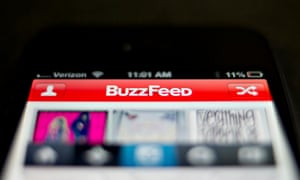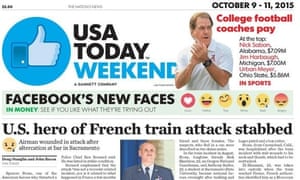Friday, 23 October 2015
Friday, 16 October 2015
Newspapers:Effect of online technology
Based on the handout you've read and the links provided, answer these questions on your blog with detailed, in-depth paragraphs. Remember, critical autonomy means forming your own opinions on these issues.
1) Do you agree with James Murdoch that the BBC should not be allowed to provide free news online? Why?
I believe that James Murdoch has a point about how the BBC shouldn't allow there online news content to be free. It makes it harder for the other institutions who charge for their content. What James Murdoch is saying is to just put a price for the content and a subscription because BBC is giving high valued news for free and making all other news websites down as they dont make money at all making it difficult for them to survive.
2) Read this blog on the Times paywall three years on.
3) Was Rupert Murdoch right to put his news content (The Times, The Sun) behind a paywall?
I think if he believes his news content is high value that people would have to pay then he can put his news content behind a paywall, its the choice of the audience if they want to. He believes that "The world is changing and newspapers have to adapt" and what he does here is says how the world is evolving in technology therefore newspapers also have to adapt to the evolution.
4) Choose two comments from below the Times paywall article - one that argues in favour of the paywall and one that argues against. Copy a quote from each and explain which YOU agree with and why.
.@NewsCorp's UK CEO Mike Darcey on Times 140,000 paid subscribers & growing revenue from engaged readers http://bit.ly/11cDyYa h/t @psmith
This comment is said to be showing the enjoyment of the readers. It is to show the money that the Times is making and the subscribers who are building up and this could lead somewhere.
@rajunarisetti @newscorp @psmith but what are they really buying?
5) Read this article from the Media Briefing on the continuing decline of the newspaper industry.
6) Why do you think the Evening Standard has bucked the trend and increased circulation and profit in the last two years?
This is because of how newspapers they have made as they say 700,000 a day its more likely to 900,000 as they are pushing for increase of circulation. They made a 27% increase of circulation by the ABC. However they lost 5% of their audiences meaning in that period it was going down slowly.
7) Is there any hope for the newspaper industry or will it eventually die out? Provide a detailed response to this question explaining and justifying your opinion.
In my opinion i believe that newspapers will go down, this would be by the use of digital devices and the digital content you can exceed with, newspapers cant go back up traditionally in percentages because if so it would be a niche audience who would like it. Rupert Murdoch is right that newspapers have adapt to the use of new technology but it would be too late as maybe getting money however its the audience who would still follow them. Advertisement right now is what saving newspaper industry and also the people who for them to carry as for the reason they think its important.
1) Do you agree with James Murdoch that the BBC should not be allowed to provide free news online? Why?
I believe that James Murdoch has a point about how the BBC shouldn't allow there online news content to be free. It makes it harder for the other institutions who charge for their content. What James Murdoch is saying is to just put a price for the content and a subscription because BBC is giving high valued news for free and making all other news websites down as they dont make money at all making it difficult for them to survive.
2) Read this blog on the Times paywall three years on.
3) Was Rupert Murdoch right to put his news content (The Times, The Sun) behind a paywall?
I think if he believes his news content is high value that people would have to pay then he can put his news content behind a paywall, its the choice of the audience if they want to. He believes that "The world is changing and newspapers have to adapt" and what he does here is says how the world is evolving in technology therefore newspapers also have to adapt to the evolution.
4) Choose two comments from below the Times paywall article - one that argues in favour of the paywall and one that argues against. Copy a quote from each and explain which YOU agree with and why.
.@NewsCorp's UK CEO Mike Darcey on Times 140,000 paid subscribers & growing revenue from engaged readers http://bit.ly/11cDyYa h/t @psmith
This comment is said to be showing the enjoyment of the readers. It is to show the money that the Times is making and the subscribers who are building up and this could lead somewhere.
@rajunarisetti @newscorp @psmith but what are they really buying?
http://crave.cnet.co.uk/laptops/nexus-7-for-50-when-you-subscribe-to-the-times-tablet-app-50009904/ …
This is explaining are we really paying for the news or just the Times advertisement as to showing the nexus 7 ad for it. They're giving advertisement methods to engage audience and the person commenting is suggesting is that what we really buying as to not showing the content which can be shown as there is a pay wall.
5) Read this article from the Media Briefing on the continuing decline of the newspaper industry.
6) Why do you think the Evening Standard has bucked the trend and increased circulation and profit in the last two years?
This is because of how newspapers they have made as they say 700,000 a day its more likely to 900,000 as they are pushing for increase of circulation. They made a 27% increase of circulation by the ABC. However they lost 5% of their audiences meaning in that period it was going down slowly.
7) Is there any hope for the newspaper industry or will it eventually die out? Provide a detailed response to this question explaining and justifying your opinion.
In my opinion i believe that newspapers will go down, this would be by the use of digital devices and the digital content you can exceed with, newspapers cant go back up traditionally in percentages because if so it would be a niche audience who would like it. Rupert Murdoch is right that newspapers have adapt to the use of new technology but it would be too late as maybe getting money however its the audience who would still follow them. Advertisement right now is what saving newspaper industry and also the people who for them to carry as for the reason they think its important.
NDM: The future of newspapers
Read this article from the Economist on the future of newspapers.
On your blog, write a paragraph summarising the argument the article makes. Then answer the following question:
This article looks at the decline in newspapers and what audiences now prefer. It stated that 'Britons aged between 15-24 said that they spend almost 30% less time reading national newspapers once they started using the web.' This shows that the younger generation are more inclined to using the internet and gaining their news from online sources, rather than reading print newspapers. The decline of print newspapers means that the number of jobs in the newspaper industry is declining. The article stated that 'the number of people employed in the industry fell by 18% between 1990 and 2004.' Although the percentage is not dramatically high, there is still less demand for jobs in this sector today and some journalists for example are loosing their jobs due to print newspapers failing and some even closing down as the print newspaper industry as not as popular and successful with audiences as they used to be. Growing technology makes newspapers more accessible and convenient for audiences to read and most are consumed for free of charge. Moreover, the article also looks at online advertising as a way to be profitable and the dependence on citizen journalism.
Do you agree with its view that it is ‘a cause for concern, but not for panic’?
In my opinion, I agree with the statement. It is most definitely a cause fro concern because print newspaper businesses face decline and failure. However, this can be turned around if more newspapers invest into providing their newspaper online rather than in a print form as nowadays, that it what is more successful with audiences. The reason I do not believe that this is a cause for panic is because it was bound to happen anyway. As technology continues to move forward, more and more businesses will face failure, therefore it is important for print newspaper companies to do something about it now.
On your blog, write a paragraph summarising the argument the article makes. Then answer the following question:
This article looks at the decline in newspapers and what audiences now prefer. It stated that 'Britons aged between 15-24 said that they spend almost 30% less time reading national newspapers once they started using the web.' This shows that the younger generation are more inclined to using the internet and gaining their news from online sources, rather than reading print newspapers. The decline of print newspapers means that the number of jobs in the newspaper industry is declining. The article stated that 'the number of people employed in the industry fell by 18% between 1990 and 2004.' Although the percentage is not dramatically high, there is still less demand for jobs in this sector today and some journalists for example are loosing their jobs due to print newspapers failing and some even closing down as the print newspaper industry as not as popular and successful with audiences as they used to be. Growing technology makes newspapers more accessible and convenient for audiences to read and most are consumed for free of charge. Moreover, the article also looks at online advertising as a way to be profitable and the dependence on citizen journalism.
Do you agree with its view that it is ‘a cause for concern, but not for panic’?
In my opinion, I agree with the statement. It is most definitely a cause fro concern because print newspaper businesses face decline and failure. However, this can be turned around if more newspapers invest into providing their newspaper online rather than in a print form as nowadays, that it what is more successful with audiences. The reason I do not believe that this is a cause for panic is because it was bound to happen anyway. As technology continues to move forward, more and more businesses will face failure, therefore it is important for print newspaper companies to do something about it now.
weekly homework
Tech companies urged to protect young from dangers of excessive screen time

Children using smartphones, standing in a row
The article talks about how children have become way to addicted to gadgets and smartphones and how it is affecting them severely and has an affect on their well-being. It says they need to protect these children form becoming psychologically damaged before its to late.- "New technologies, smartphones, tablets and social networking sites have brough great benefits to millions of people, including children"
- Lloyd said the government needed to “empower young people through education in the classroom to understand how usage of social networking sites and screen-based media can influence their wellbeing, for example, by making them feel inadequate next to the online lives presented by peers”.
- The SSC also floated ideas that could help children when using electronic media. These include encouraging them to keep social media diaries to help them “balance” their online and offline lives and for social networking sites to install “virtual” usage meters as default settings for all users who are under 18, so that they are made aware of how long they are spending online.
USA today's Facebook - inspired use of emojis gets thumbs down
http://www.theguardian.com/media/2015/oct/12/us-todays-facebook-emojis-twitter
USA Today: emojis on the front page were inspired by Facebook Reactions.
This article talks about how emojis are a common feature of online messaging on smartphones and computers and is extremely popular with the public. It also says how 'USA today's' have started using them with each article they produce e.g an article about Russian bombing of Syria was illustrated with an angry red face, while a story about the stabbing of a US citizen - who had recently helped stop a terrorist attack in France - carried a sad face with a tear emerging from one eye. It was noted that the more digital people are, the more the seemed to like them.
- The stunt received a mixed reaction on twitter, with some pointing out that it jarred with the serious nature of the stories being covered and others questioning whether emojis had a place in print.
NDM News: Citizen Journalism
Media Magazine: The Rise and Rise of UGC (Dec 2009)
Examples
- Rodney King - caught after a high-speed chase, officers surrounded him, tasered him and chased him - the event filmed by an onlooker recording the event from his apartment window.
- December 26th 2004 - Asian Tsunami - tourists filming, on-the-spot witnesses
- July 5th, 2005 - London Bombings - footage on phones by bystanders described as "raw"
- Hudson river plane crash - Twitter broke the news, twitpic posted
- Mumbai bombings 2008
Theory (audience reception etc.)
- Hyperreality theory (Baudrillard) - news constructs reality, whereas citizen journalism is more realistic and authentic. Although the production values are low in terms of poor sound and shaky camera work, the production of authenticity increases. Citizen journalism is challenging this theory.
Benefits to institutions
- There are fewer permanent staff at institutions - this is an effective method of cutting costs. Citizen journalism is free, whereas professional journalists have to be paid
- Institutions can create dramatic stories with evidence from citizen journalism, ultimately recognition gained for institution
- Citizen journalists drive content and attract audiences
- Audiences gravitate to bigger institutions for big stories - creates profit
Benefits to audience
- Audiences see things they don't usually do - less user-generated content/moderated content
- Audiences have the ability to challenge authority
Wider issues and debates
SHEP
Social
Authority being threatened - police and government as citizen journalism allows people to challenge and share examples of in justice freely although some may suffer the consequences of being prosecuted
2) What was one of the first examples of news being generated by ‘ordinary people’?
- Hard for institutions to verify stories from citizen journalism
- Selective editing from institutions giving false headlines - ultimately institutions lose credibility
- Idea of stories from citizen journalism being a hoax could harm institutions
- Threat to authority - police and government being challenged
- Institutions lose mass control as advances in technology mean that social media sites such as YouTube and Twitter have dominated as audiences gravitate towards them as a source of surveillance (uses and gratifications theory)
SHEP
Social
- Anybody with a camera phone/smartphone can be a citizen journalist as they can post up their evidence to social media instantly
Historical
- Certain stories which have been a high-watermark in the news industry are only big because of the invention of camera phones which allow members of the public to record evidence and post it up to social media sites.
e.g. Rodney King - caught after a high-speed chase, officers surrounded him, tasered him and chased him - the event filmed by an onlooker recording the event from his apartment window.
Economical
- Institutions cutting costs as they can get rid of current professional journalists and can run their company of citizen journalism which is free
- Institutions also at risk of losing profit as audiences may completely gravitate towards citizen journalism completely
Political
QUESTIONS
1) What is meant by the term ‘citizen journalist’?
A citizen journalist is one who shares news instantly, as the advances in technology allow anyone with a videophone can upload content onto social media.
2) What was one of the first examples of news being generated by ‘ordinary people’?
In 1991, the Rodney King incident where police were shown beating up King sparked huge civil interest. A bystander was looking outside his apartment window and saw the incident and immediately began recording.
3) List some of the formats for participation that are now offered by news organisations.
3) List some of the formats for participation that are now offered by news organisations.
Bebo, MySpace, Facebook, YouTube Wikipedia news, Google news and Twitter
4) What is one of the main differences between professionally shot footage and that taken first-hand (UGC)?
4) What is one of the main differences between professionally shot footage and that taken first-hand (UGC)?
Professionally shot footage has high production values and may be slightly altered to make the news seem more dramatic than what it already is. First-hand footage usually has low production values, such as the sound might be poor quality, and has a more authentic "in-the-moment" feel.
5) What is a gatekeeper?
5) What is a gatekeeper?
A gatekeeper decide what is news and what isn't.
6) How has the role of a gatekeeper changed?
Audiences can send in as much UGC into major news organisations without being aired. Also, citizen journalism means that anything can be made out to be news, even with video evidence because what matters is how the audience interpret the news.
7) What is one of the primary concerns held by journalists over the rise of UGC?
The risk of being dominated by racism and "hate-fuelled" content
What impact is new/digital media having on the following:
6) How has the role of a gatekeeper changed?
Audiences can send in as much UGC into major news organisations without being aired. Also, citizen journalism means that anything can be made out to be news, even with video evidence because what matters is how the audience interpret the news.
7) What is one of the primary concerns held by journalists over the rise of UGC?
The risk of being dominated by racism and "hate-fuelled" content
What impact is new/digital media having on the following:
- News stories
Advances in technology mean that social media has dominated the news industry as citizen journalism is pivitol is providing news for other users. For example, the Eric Garner case where a bystander took video evidence of his arrest was all over social media sites and this impacted audiences worldwide. As a result, the hashtag #ICantBreathe was trending worldwide to raise awareness of this case and to demonstrate how the police are brutal and violent.
- The news agenda (the choice of stories that make up the news)
Citizen journalism has the ability to make anyone believe what they read, ultimately this can cause moral panic. Institutions are running off citizen journalism as their news stories are replicated from evidence of which citizen journalism creates.
- The role of professionals in news
Professionals are being degraded as citizen journalism has dominated over the past few years in which how audiences receive their news. Journalists spend much time doing thorough investigation, whereas citizen journalism allows unmoderated content to be broadcast-ed quickly. Ultimately, this causes moral panic.
Friday, 9 October 2015
Weekly Homework
Muslim Gang violence
http://www.theguardian.com/media/2015/sep/20/mail-on-sunday-apologises-for-muslim-gangs-attack-immigration-van-story


This article is about the effects ad blocker is having on newspaper revenues, research has found that moblile advertising overtaken print ads in the UK, which is 20% of the entire advertising revenue. Facebook and the social mob are becoming a news hub of their own for hundreds of millions of (often young) users –potentially eclipsing the value of discrete news websites.The ad blockers of this world are destructive forces, undermining the revenue base of so much news coverage. This article stays optimistic that this is a small obstetrical the newspaper industry can overcome.
http://www.theguardian.com/media/2015/sep/20/mail-on-sunday-apologises-for-muslim-gangs-attack-immigration-van-story

This article is about a misunderstood statement against a group of Muslim boys in hoodies, that vandalised an immigration enforcement car. It was said that 'Muslim gang slashes tyres of immigration-raid can before officers were showered with eggs from high rise'. This caused great controversy as the audience believed that the articles was negatively targeting the Muslim community, instead of the individuals.
- An article on July 26th said a gang of Muslim youths was responsible for damaging Home Office immigration enforcement vehicles in Shadwell, east London, in the week the prime minister appealed Muslims to help combat extremism.
- The mail on Sunday agrees to rewrite the story to remove the references to Muslims
- The coverage of Muslims in mainstream media continues to be very negative and there are too many sensationalist headlines that generalise about Muslims.
In my opinion, I would argue that this is just practically racism as they have targeted all the Muslims rather than just the individuals who had vandalised the immigration officers car. They emphasising the fact that all Muslims are bad, which makes me feel upset as being an Asian individual.
Ad blockers are wreaking havoc with the online revenue of newspapers

- 20% of advertising revenue made by mobile advertising
- Ad blocker causing a decrease of the revenue for more industries
- the newspaper continues to go into a revenue decline
Friday, 2 October 2015
Weekly Homework
Universal internet access to combat poverty

This article is about Mark Zukerbergs the co founder of Facebook opinion on the importance of the internet. He said that there should be global access to the internet by 2020, in order to create a united world where we can all understand each other. He described this objective as a 'to do list for the people of the planet' and pitched to the United Nations, "a like or a post wont stop tanks or bullets, but when people are connected we have a chance to build a common global community" this highlights the importance of the internet, which allows people to communicate worldwide as-well as give people the will to stand up for what they believe in. This newspapers expresses the importance of the internet for social change.
- global access to the internet by 2020
- objective as a 'to do list for the people of the planet'
- wont stop bullets or tanks, but has a chance of building a common global community
- an affective way to combat the UNs newly adopted agenda of global illness.
In my opinion this is an effect way to get people communicating globally, and may help people stand up for what they believe in as the internet is desensitised. Also because they can see issues of other people from different countries it may help them empathies with them as a result connecting the world. However I don't think the having access to the internet is the most effective way to deal with poverty, because people will need homes and food before they can start paying broadband bills.
Amazon launches gaming and 4K streaming fire TV update
http://www.theguardian.com/technology/2015/sep/17/amazon-launches-gaming-4k-streaming-fire-tv-update

Amazon has moved into the 4K content with a new fire TV box and ultra-high definition content through its video streaming service. They claim that this has been the best selling box on the market in the UK and Germany, beating Apple. Also, the new Fire TV is 75% faster and handles 4K content; it has a more efficient compression system for full HD content which allows many users to stream 1080p video even with poor connection. Furthermore, the company had released a new games controller with headphones and voice search support, claiming to have the largest games library of any media streaming service with over 3,000 apps, games and channels available through the Amazon apps store.
The box has instruction videos and Amazon's built in live person techs support called May Day, which guides users through features and settings via the phone and with a remote control.
In my opinion, I argue that Amazons new Fire TV is very useful as it allows consumers even with poor connection to watch movies or games in ultra-HD content. Its so annoying having to watch them in poor quality with poor connection and so this new TV solves all our problems. However, it only allows the audiences to watch content from the Amazon app and so movies or games which you really want to watch may not be in their store. But overall, it is a good invention to sell.
- Connection speeds of at least 15Mbps will be requires for 4K content.
- Ultra-HD content
- The new Fire TV costs £79.99
The box has instruction videos and Amazon's built in live person techs support called May Day, which guides users through features and settings via the phone and with a remote control.
In my opinion, I argue that Amazons new Fire TV is very useful as it allows consumers even with poor connection to watch movies or games in ultra-HD content. Its so annoying having to watch them in poor quality with poor connection and so this new TV solves all our problems. However, it only allows the audiences to watch content from the Amazon app and so movies or games which you really want to watch may not be in their store. But overall, it is a good invention to sell.
Audiences and Institutions
1) Read this extract from the Ofcom 2014 report on the consumption of news in the UK. What are the key statistics relating to the influence of new and digital media?
- The majority of adults in the UK (95%) say they follow the news.
- Television is by far the most-used platform for news, with 75% of UK adults saying they use TV as a source of news; this figure has seen a small decrease since 2013 (78%).
- evident in the 16-34 age group, where use of internet or apps for news has increased
- figures show that each adult watched an average of 115 hours of national and international news on television
- The majority of this (64%) was on BBC One or BBC Two and a further 12% on the BBC News channel. However, 16-24 year olds consumed only 27 hours of news on television in the same period, compared to 196 hours for those aged 55 and over.
- UK adults nominated crime (53%), worldwide current affairs (53%), UK-wide current affairs (51%) and UK-wide politics (49%).
- the 16-24s, specific news categories such as crime, sports, technology and science/environment fall into the top ten topics, while the over-55s are more likely to nominate, general world news and UK and regional current affairs.
2) Come up with an example of an institution that has benefited from the changes new and digital media has brought to the news industry. Explain how new technology has helped the institution and try to find statistics or financial figures that support your point.
3) Find an example of an institution that has suffered as a result of the changes new and digital media has brought to the news industry. In what way has it had a negative impact? Again, try and find actual statistics or financial figures to explain your point.
An example of an institution that has suffered because of the changes in new and digital media is the daily telegraph. This institution is suffering because of the lack of sales they are making with their newspapers. This is because audiences are given a range of platforms to access the news such as, the internet, television and mobile apps. These alternative ways audiences can access news are more convenient for audiences therefore leading to the daily telegraph, who generate majority of their revenue through sales of newspapers, to suffer.
4) Answer the following question in a mini-essay on your blog:
Who has benefited most from the changes new and digital media have had on the news industry - audiences or institutions?
Both audiences and institutions have benefited from new and digital media audiences have benefited in terms of they now have much more ways to access news, also ways to access news for free instead of 15-20 years ago when they would have had to buy a newspaper to get their news. Audiences can also now become journalists and report on news our selves with blogs and online comments on newspapers websites. institutions have also benefited from new and digital media as they now have much more ways to reach their audience with online, social media etc, they also can now reach a much wider audience than before as young people are more interested in the news as they see it on their Twitter feed whereas they wouldn't have seen it before because they weren't looking for it.
However both audiences and institutions have also had negative affects on them from new and digital media. An example is that we as an audience have been desensitised to more graphic things we wouldn't have seen on the news 20 years ago. An example of this would be Aylan, the boy who drowned during the refugees travelling from Syria. The images showed the boy on the beach face down and due to new and digital media.
Subscribe to:
Comments (Atom)


